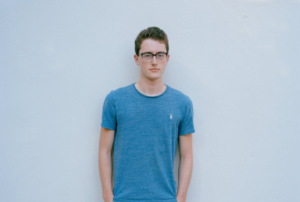In this piece for The New York Times, Benoit Denizet-Lewis explores the social, cultural, and economic factors that have contributed to the significant rise in severe anxiety among American teenagers over the past several years. He also explores the challenges faced by parents of anxious teenagers, such as the question of whether to push their children to face their fears or protecting them from anxiety-producing circumstances.
-
This is a very sad article on the state of the dissolution of our attachment relationships in our culture which, in the past, would have kept most of these young adults from the debilitating anxiety they feel. I know I’m a broken record, but attachment theory is foundational, period. It provides the stability we ALL need to face an unsafe and uncertain world. The need for affect regulation, a safe haven and proximity maintenance are never completely outgrown in our lives. I did all these for my wife as she’s been healing, and she in turned provided them for our son and his need remained as he went away to his masters programs as his last semester approached and his apprehension grew and so my wife simply talked him thru his overwhelming anxiety by spending as much time as needed each night on the phone walking him thru his fears, helping him with his coping strategies. Sadly one of his classmates literally disappeared for 3 weeks because he was so overwhelmed. Even now as he’s in his PhD program, we continue to foster the attachment ties he has with us. We hope some day when he finds a significant other that she will take over, but until then we recognize we are his safe haven in a high-stress environment…so I will be buying a PS4 soon, per his request, so that we can play Drake’s Fortune over the internet like he and I did at home during his undergrad years, and my wife is looking for a way to take him on a vacation, per his request.
It’s very sad that the mental health system as a whole still doesn’t understand the basic concepts of this theory and what it can do for people in distress. Moreover, in our fast food culture and single-parent homes or where both parents work, few people have the time or patience to do the hard work of maintaining strong ties with those in our lives…
-
I don’t know if more young people suffer from anxiety than before but it is possible to learn to cope with anxiety – without drugs and without therapy.
Even if a person has a completely easy life, their “minds” can still create fully justifiable “anxiety”.
-
This article does not report any evidence that anxiety has actually increased among adolescents.
He brings the proof:
1) that adolescent psychiatry has developed in recent years,
2) that, on the occasion of this development, the psychiatric staff found a relative increase in adolescent anxiety complaints.
The author recognizes:
“While it’s difficult to tease apart how much of the apparent spike in anxiety is related to an increase in awareness and diagnosis of the disorder, many of those who work with young people suspect that what they’re seeing can’t easily be explained away.”
It is then the author unknowingly gives the most plausible reason for the increase in diagnoses:
“For the teenagers who arrive at Mountain Valley, a nonprofit program that costs $910 a day and offers some need-based assistance, the center is usually a last resort after conventional therapy and medications fail.”
The prescription of anxiolytics increases anxiety in the long run. In addition, psychiatric staff offer anti-anxiety services at $ 910 per day. The circle is complete. For comparison, my income in France is € 472 per month, or $ 557 per month.
“During one group session in the summer of 2016 in a sunlit renovated barn with couches, a therapist named Sharon McCallie-Steller instructed everyone to write down three negative beliefs about themselves.”
It is typically the kind of command that will diminish the participants’ self-esteem.
“That’s an easy exercise for anxious young people (“Only three?” one girl quipped), but McCallie-Steller complicated the assignment by requiring the teenagers to come up with a “strong and powerful response” to each negative thought.”
After our dear McCallie-Steller has sparked three negative beliefs about ourselves, arousing the irony of one of the participants, she gives the order: “get off with that!”
What a wonderful psychologist! She really deserves $ 90 an hour! And the more she is harmful, the more its “non-profit” institution will have customers and will be able to enrich itself! It’s the circle of virtue.
“At Mountain Valley, Jake learned mindfulness techniques, took part in art therapy and equine therapy and, most important, engaged in exposure therapy, a treatment that incrementally exposes people to what they fear. The therapists had quickly figured out that Jake was afraid of failure above all else, so they devised a number of exercises to help him learn to tolerate distress and imperfection. On a group outing to nearby Dartmouth College, for example, Jake’s therapist suggested he strike up conversations with strangers and tell them he didn’t have the grades to get into the school. The college application process was a source of particular anxiety for Jake, and the hope was that he would learn that he could talk about college without shutting down — and that his value as a person didn’t depend on where he went to school.
Though two months in rural New Hampshire hadn’t cured Jake of anxiety, he had made significant progress, and the therapy team was optimistic about his return home for his senior year. Until then, Jake wanted to help other Mountain Valley teenagers face their fears.“
LOL. Another way to say that two months of “exposure therapy” is a total failure! $55510 spend for nothing, otherwise fattening ~§@!# like McCallie-Steller! Moreover, if the “therapy team” is now “optimistic” for him, it is precisely because he began to act like a “therapist”:
“Among them was Jillian, a 16-year-old who, when she wasn’t overwhelmed with anxiety, came across as remarkably poised and adultlike, the kind of teenager you find yourself talking to as if she were a graduate student in psychology. Jillian, who also asked that her last name not be used, came to Mountain Valley after two years of only intermittently going to school. She suffered from social anxiety (made worse by cyberbullying from classmates) and emetophobia, a fear of vomit that can be so debilitating that people will sometimes restrict what they eat and refuse to leave the house, lest they encounter someone with a stomach flu.
Jillian listened as Jake and other peers — who, in reality, liked her very much — voiced her insecurities: “I can’t believe how insignificant Jillian is.” “I mean, for the first three weeks, I thought her name was Susan.” “If she left tomorrow, maybe we wouldn’t even miss her.”
At the last one, Jillian’s shoulders caved, and her eyes watered. “I don’t want to do this,” she said, looking meekly at McCallie-Steller.”
McCallie-Steller is definitely a remarkable therapist. Faced with a person who suffers, she encourage Jake and the whole group to push the victim underground. But, you see, the band likes her a lot, it’s for her good that it does that! Double bind erected in a “therapeutic” system, for more schizophrenic relationships!
And see the completely specious reasoning!
“FIRST, she suffered from social anxiety, THEN this social anxiety made worse by bullying.”
It’s obviously the opposite! How can one be so blind ?!
Lay off therapists like McCallie-Steller and destroy institutions like Mountain Valley, and you’ll have a net decrease in anxiety and “anxiety diagnose” among young people.
-
When I observe a group of teenagers relating to each other on London Transport, I become socially anxious.
-
The school system is anti-human. Spending the whole day sitting in a chair listening to someone talking, doing exercises, being able to express yourselves only when you are allowed to do so and only on a controlled topic makes you completely crazy. It is not surprising that children jump at each other’s throats after undergoing similar treatment. I listened to my younger brothers talk to each other after school: a large part of their exchange consists of threats, insults and assaults. It disappears during the holidays.
-
-
This is what happened to Eckhart Tolles Anxiety (author of “The Power of the Now”):-
https://en.m.wikipedia.org/wiki/Eckhart_Tolle
“…I didn’t know at the time that what really happened was the mind-made self, with its heaviness, its problems, that lives between the unsatisfying past and the fearful future, collapsed. It dissolved. ….”
Eckharte Tolle gives very good advice on anxiety reduction – and his advice has worked for lots of people.
Practically all his teachings can be found for FREE on the Internet (YouTube).
According to Eckharte Tolle a person can develop Full Peace of Mind – Organically (without professional help).















